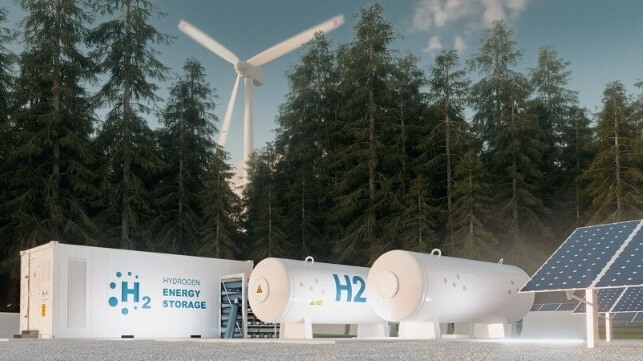Germany Commits $1B to Supporting Green Hydrogen Ventures Abroad

Germany has been granted approval to implement a $1.1 billion program to subsidize the manufacturing of green hydrogen abroad before being imported and sold in the European Union.
The European Commission said it has approved Germany’s ‘H2Global’ program, which is designed to support investments in the production of renewable hydrogen in non-EU countries for import into the EU. The scheme aims at meeting the EU demand for renewable hydrogen, which is expected to significantly increase in the coming years. In approving the initiative, the European Commission concluded that H2Global is in line with EU’s State aid rules because it supports projects that will reduce greenhouse gas emissions (GHGs).
“This German scheme will support projects leading to substantial reductions in greenhouse emissions in line with the EU’s environmental and climate objectives,” said Margrethe Vestager, EU Executive Vice-President in charge of competition policy.
She added that the scheme will contribute to addressing the increasing demand for renewable hydrogen by supporting the development of the clean energy parts of the world where it is currently not exploited. “The design of the scheme will enable only the most cost effective projects to be supported, reducing costs for taxpayers and minimizing possible distortions of competition,” she noted.

that matters most
Get the latest maritime news delivered to your inbox daily.
Germany intends to support the ramp-up of clean energy projects across the world, supporting up to 500 MW of electrolyzers to produce some 40,000 tons of green hydrogen per year. The green hydrogen import initiative expects physical delivery of the first cargo into Germany by the end of 2024 and is expected to run for 10 years starting from the award of the first contract.
The scheme will be managed and implemented by a special-purpose entity named Hydrogen Intermediary Network Company, or HINT.CO. This organization will sign long-term purchase contracts on the supply side (green hydrogen production) and short-term resale contracts on the demand side (green hydrogen usage). Producers of renewable hydrogen and hydrogen derivatives such as green ammonia, green methanol and e-Kerosene across the globe will be the main beneficiaries.
